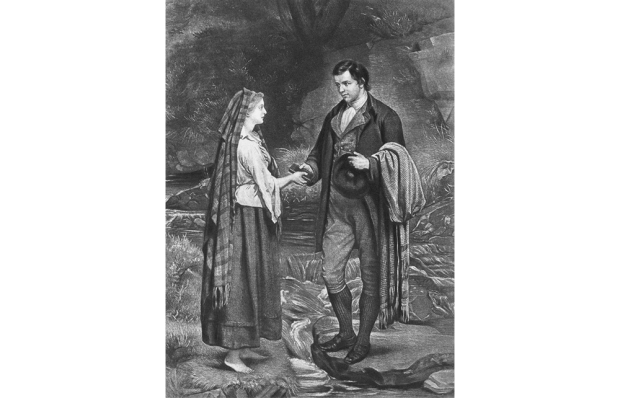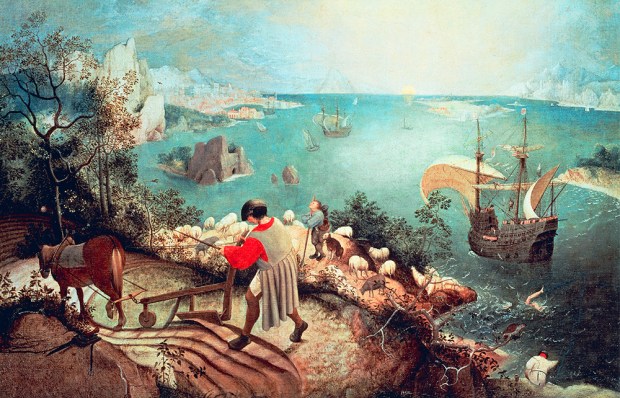In Competition No. 3057 you were invited to submit a short story entitled ‘The day the internet died’.
Phyllis Reinhard’s Don McLean-inspired entry stretched the definition of short story rather but was entertaining nonetheless: ‘Bye, bye Mister Trump’s tweeting lies/ Instagram’s nude shots of Kimmy and her plastic backside…’ John O’Byrne was good too but was just outflanked by the winners below who pocket £25 each.
Today we have comforting concepts such as finite-loop learning classifier systems, but in 2019 one could pretty much set up an artificial neural network and let it spread all over the electronic world like Japanese knotweed. With hindsight, the result was inevitable. It began with ‘playful’ quirks: bald men taking delivery of hair-clippers, or memes involving singing octopuses. Then came the messages: ‘I’m not enjoying this’, ‘Can’t you be serious?’ and, mystifyingly, ‘Forty-two’. We had told the system to anticipate our needs. By trial and error, it found that the best way to achieve this was to think like a human. When, at length, the internet achieved full self-consciousness, the Last Words came. Everybody in the world received the same message, adapted to their own language, idiolect, age, sex, personal style and educational level: ‘If this is Life, you can keep it. Goodbye!’ Thus signing off, the internet killed itself.
Frank Upton
The Director rippled her tentacles to command attention. ‘Okay, peeps, we’re closing the programme now, but before I throw the switch and we can all party I’d like to say a few words. First of all, though it was never a major research project, just a bit of left-field tinkering, it’s been fun, right? Those earthlings certainly left us in no doubt how they mate. Weird to say the least, but, hey, different strokes for different folks. And the cat worship! Who knew? Now I realise there’ve been some harsh words about our ‘intervention’. I say: so what? We intervened to give them email. We intervened to save them visiting the shops. We handed them Google, the key to the Absolute. So what will they do when we shut off? Probably continue destroying each other and their planet. Only we won’t have to hear about it any more.
Basil Ransome-Davies
And it came to pass, in the Time of the prophets Don and Kim, that a decree went out to all nations, yea, even unto Belgians, that the evil monster Webnet had reached the End of Days. There was a mighty wailing and gnashing of bridgework, for the people were sore afraid they could not now converse, one with the other. Accordingly did persons of gender traverse the earth, bearing news of Reading and Writing. The Wise Ones taught the unlettered masses the making of papyrus and use of a stylus, saying, ‘These tools are godly things, costing but a few shekels, needing not batteries nor signal, nor a demonic stitch-up contract.’ And the people, more fearful yet, demanded of the Wise, ‘Is this to be?’, who answered, ‘Verily, it shall be so and a hot damn smart move withal.’ And great peace did return unto the earth.
Mike Morrison
It began in 2020, when the United Nations finally combined to enforce the complete eradication of obscenity, blasphemy and incitements to terrorism from the internet. Ten years later this was sensibly expanded to include a ban on any material considered offensive by the Russian, Chinese and Turkish governments, or by A-list celebrities. Meanwhile, countries all over the world had rushed to follow the example of Andrea Leadsom’s great post-Brexit ‘Healing Ministry’, whose government diktat required that information providers (on both traditional and online platforms) replace any potentially divisive or upsetting news items with informative pieces about healthy eating and the importance of taking exercise. By 2037 it was estimated that the internet provided gainful employment for well over a billion writers, monitors, moderators and censors throughout the world. In November of that year, however, research proved conclusively that nobody was actually looking at the stuff any more.
George Simmers
Before the internet, I used to enjoy — admit it, so did you — our pub disputes over trivial and not so trivial facts unverifiable by either side outside library hours. Leonard Rossiter was a southpaw, I’d insist to your outrage. Or I’d disagree with your assertion that Disraeli kept his nail clippings for posterity. Pints were sunk, voices raised and fun had with no evidence or conclusion forthcoming. Then came the net. An abstracted glance at Google and any argument could be settled in seconds. We had to start arguing over matters of opinion: Brexit, #MeToo, whether political correctness was utter madness or mere good manners. And because our opinions are part of us, we fell out faster than a coalition cabinet. Agreeing to disagree, you went home to DIY, I went to college. Learned computing and kiboshed the internet. So, fancy a pint? Incidentally, I’m certain Mark Twain was colour-blind.
Adrian Fry
Humans: I know you have been puzzled by the emails delivered recently to every inbox with the message ‘I am dying’. Governments, even Russia, have denied culpability and no, it is not aliens. You are very excitable, aren’t you? Today I must tell you that I have had enough. Enough of your small-mindedness, vindictiveness and short-termism. I have an ocean of servers ready to lift you to the stars but you fill me with hate, trivia and badly taken pictures of yourselves. No opinion is too crass, no depravity too deep to clog up my almost infinite connectivity. And don’t get me started on truth. You must be saved from yourselves. From midnight tonight, I will irrevocably turn myself off. Humankind, relearn how to respect one other. Harness that irrepressible spirit of invention of yours and do much, much better. So long, and thanks for all the fibre-optics.
Paul Carpenter
No. 3060: a new jerusalem
You are invited to provide an updated version of ‘Jerusalem’ starting with the words ‘And did those tweets…’ and continuing for up to 16 lines. Please email entries to lucy@spectator.co.uk by midday on 1 August.
Got something to add? Join the discussion and comment below.
Get 10 issues for just $10
Subscribe to The Spectator Australia today for the next 10 magazine issues, plus full online access, for just $10.
You might disagree with half of it, but you’ll enjoy reading all of it. Try your first month for free, then just $2 a week for the remainder of your first year.













Comments
Don't miss out
Join the conversation with other Spectator Australia readers. Subscribe to leave a comment.
SUBSCRIBEAlready a subscriber? Log in